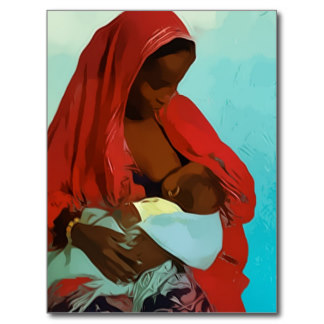
You enter into a public service vehicle- a matatu, and sit next to a woman with a restless baby who cries all the time. People seem to be irritated by the screams of the infant. Some just look the direction of the mother with faces telling her to shut the brat up. Others plug their earphones on their ears and drown the screams as they enter their ‘ideal’ world.
Then there are the brave ones who will shout to the mother, “Mama Nyonyesha mtoto”- “Woman, breastfeed the child”. The woman, to avoid embarrassment, will automatically pull out a baby shawl and cover the baby so that she breastfeeds her baby. She will do that to avoid embarrassing herself and making the passengers uncomfortable.
We never stop to ask ourselves how the child feels eating when covered. How frustrated the mother feels with people shouting at her to breastfeed the baby, to quiet the baby. This is the situation which women find themselves in when they are in public with their children.
She may even have chosen not to breastfeed her baby for health reasons. Some women opt not to breastfeed due to their HIV status for example. This does not imply that every woman who is not breastfeeding is suspect and liable to a diagnosis, that’s not our duty. That being beside the point, we should give mothers an enabling environment to make their choices of feeding their babies without judgment.
The World Alliance for Breastfeeding Action’s vision is “A world where breastfeeding is the cultural norm, where mothers and families are enabled to feed and care optimally for their infants and young children thus contributing to a just and healthy society.”
Exclusive breastfeeding as recommended by World Health Organization should be done exclusively for the first six months of life. Continued breastfeeding with appropriate complementary feedings is recommended until children are two, for optimal growth and development.
In today’s fast paced society, this might be a tall order for mothers to reach, considering the challenges faced by career women. This is an issue that makes many women opt out of employment in order to nurse their babies. Although middle income women are often in formal employment and entitled to three months maternity leave, they also have their share of challenges. In some instances, maternity leave is not respected. Mothers are sometimes asked to do some work on maternity leave. On other occasions they are recalled with the threat of being fired if they don’t return.
A report by Philips Africa of its latest research focused on supporting new mothers in their breastfeeding journey, said limited early initiation of breastfeeding, unsupportive work environments, and cultural influences, lack of access to breast milk expression facilities, poor day-care facilities and impeding beliefs were among the challenges identified in the research. This report was done to mark the World Breastfeeding Week, which started from August 1 to August 7.
This week, the world celebrates the world breast feeding week, we need to ponder on the cultural, social and physical barriers to breastfeeding. There should be more workplace policies that support nursing mothers.